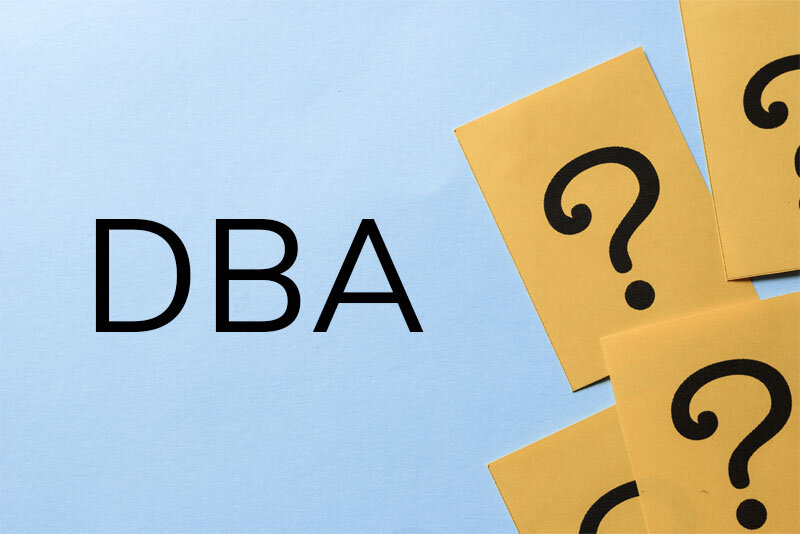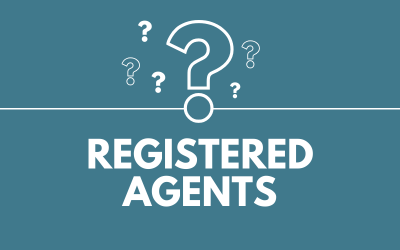Do you know if your DBA needs to be renewed? If so, do you know the date it will expire if you don’t take action?
Whether you need to renew your DBA depends on where you live. Rules pertaining to DBAs vary from state to state and among some local governments, so you’ll need to do some research to find out what applies to you.
Many states require business owners to renew their DBAs every five years, but some states, counties, and cities have shorter time frames for renewals. Other states offer renewal terms of up to 10 years, while a few states do not require any renewal of DBAs.
If you’re not sure about the renewal requirements for your DBA, check the original paperwork you filed or log onto your state’s Secretary of State’s website to find out. Many states send notices reminding businesses to renew their DBAs. If you think you’re required to renew but haven’t received a notice, check to see if your contact information is outdated or there’s another problem.
Understanding renewal requirements is important to keeping your DBA current and your business in compliance!
How to Renew a DBA
Renewing a DBA should not be difficult, but it’s important to do so according to the rules of your state or local regulatory agency, as not completing the process correctly could cause compliance issues. Be sure to understand what’s required and follow each step carefully.
Generally, you’ll renew your DBA through your state’s Secretary of State or your county clerk’s office, much the same way that you filed it originally. You’ll probably have to fill out a form, sign it, and pay a renewal fee. Some states or local municipalities may require the form to be notarized.
The fee for renewing the DBA should be lower than the original filing fee, which normally ranges from between $10 and $100. If you renew on time, you should not have to republish the DBA notice that you may have been required to have printed in a local newspaper when you first filed.
Renew Your DBA With CorpNet
By asking CorpNet to help you renew your DBA, you can rest assured the process will be handled correctly and quickly.
Renewing a DBA That’s Already Expired
If you realize that your DBA has expired, don’t panic. You’ll want to act quickly, however, as not acting could cause your business to lose the right to the name.
Some states offer a grace period for renewing a DBA, so start by finding out exactly when yours expired and whether you fall within that period. If you do, you’ll just follow the ordinary renewal procedures.
If you’ve missed the grace period or your state doesn’t offer one, the process will be more complicated, as basically, an expired DBA no longer exists. If that’s the case, you’ll need to start over and follow the same process as your initial application, including:
- Conducting a business name search
- Filing an application with the Secretary of State or county clerk’s office
- Paying application fees
If your DBA name is still available, you should be able to renew it without problem. If someone else claimed the name after yours expired, however, you might need to choose a new DBA, a move that would be inconvenient at best, and probably costly to your business.
Consequences of Not Renewing Your DBA
Failing to renew your DBA can have far-reaching consequences that could be detrimental to your business.
As you’ve read, not renewing can result in your DBA expiring, making it available for another business to use. Or the DBA could become inactive, causing you to lose the right to use the name.
Having to find a new DBA can significantly disrupt your business. Losing the right to your DBA can affect contracts and legal proceedings, as the name you’ve been operating under is no longer your legal business name and cannot be used.
Having to change a business name is confusing to customers and means you’d have to redesign all your branding, including signage, websites, and anything else containing the name.
Operating a business under an expired DBA can result in fines and other penalties in some states or counties and, in worst-case scenarios, cause your business to be shut down.
Some Final Thoughts
Running a business is a full-time endeavor, and there are a lot of moving parts involved with keeping it in compliance in all areas.
While DBAs can be valuable tools for establishing brand identity, protecting privacy, or offering multiple brands, they do require your attention and can result in some headaches and extra work.
Be sure you understand all compliance regulations and document all actions you take to meet those requirements. If you feel that compliance issues are taking too much time or you’re worried about meeting all the requirements, consider seeking outside assistance to save your time and ensure that regulations are met.





